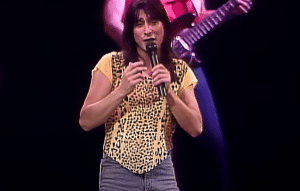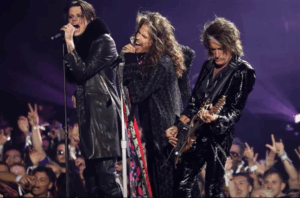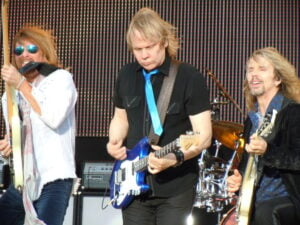Steven Tyler Feared One Aersomith Song Would Ruin His Career

via Steven Tyler / YouTube
Aerosmith’s roots run deep in bluesy, hard-hitting rock and roll. Inspired by bands like The Rolling Stones and Led Zeppelin, their early albums—like Rocks—were pure, unfiltered American swagger. But behind the scenes, things weren’t always so smooth, especially when personal drama and creative differences came into play.
Breaking Down in the ’70s
By the late ’70s, things were spiraling. Tension between Steven Tyler and Joe Perry had reached a boiling point, especially because of Perry’s wife, Elyssa. After one intense backstage blow-up, Perry walked away from the band. While Perry launched The Joe Perry Project, Tyler self-medicated with cocaine, and Aerosmith kept going with mixed results.
It wasn’t until their manager Tim Collins helped the two reconcile that the magic had a chance to return. They reunited for Done With Mirrors, but despite their renewed chemistry, the album didn’t make waves. Something had to change.
A New Sound with a Pop Twist
After teaming up with Run-DMC for the genre-blending hit “Walk This Way,” Aerosmith found themselves open to reinvention. That’s when they met songwriter Desmond Child. Working together, they churned out hits like “Dude (Looks Like a Lady),” and things were finally looking up.
But not everyone was thrilled about their new direction.
The “Angel” Controversy
As they worked on Permanent Vacation, Child and Tyler co-wrote the tender ballad “Angel.” Though now considered a classic, the song caused major pushback at the time. According to producer John Kalodner in Walk This Way, “Tyler says that I ruined his career by making him write ‘Angel’ with Desmond.”
Even bassist Tom Hamilton doubted the track at first. “The song was just too wimpy,” he told Behind the Music. “Then when we played it on the road, I had these hardened biker guys saying, ‘Play ‘Angel’. I love that ‘Angel’ man. Oh yeah’. So there goes my argument.”
A New Chapter for Aerosmith
Despite the doubts, “Angel” helped open the doors to a whole new era for the band. With power ballads and party anthems, they reinvented themselves in the late ’80s and ’90s. Collaborating with other hitmakers like Diane Warren and Tommy Shaw, Aerosmith proved they weren’t stuck in the past—they were evolving.
Turns out, even rock gods can make room for a love song.













